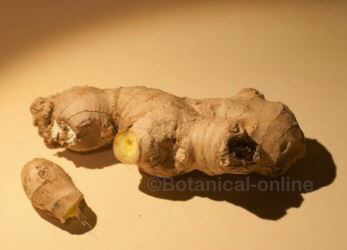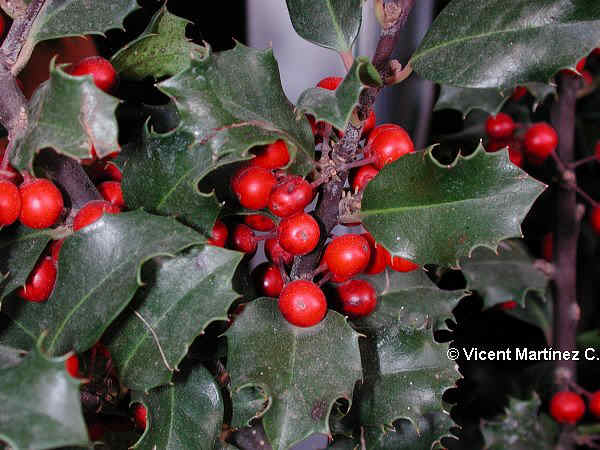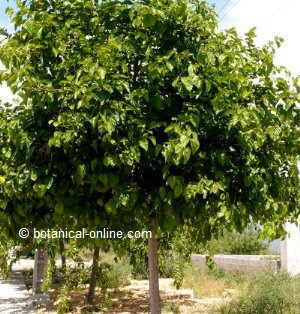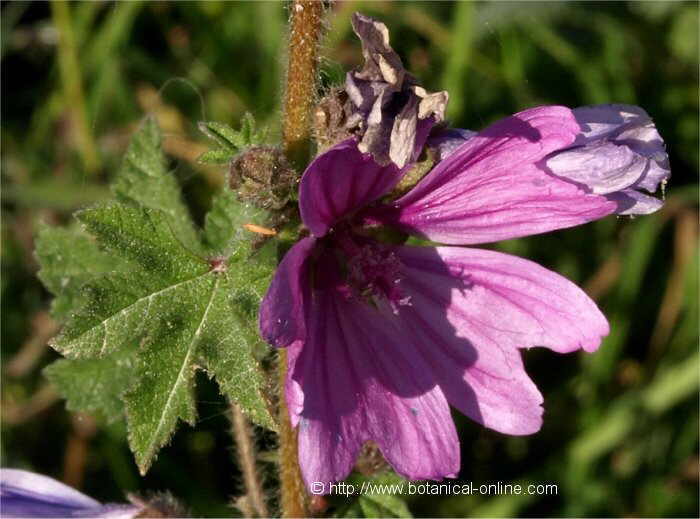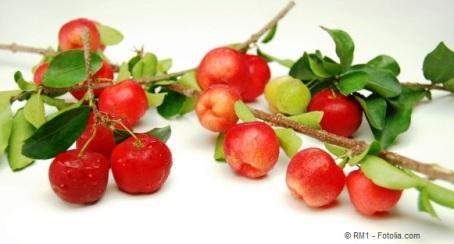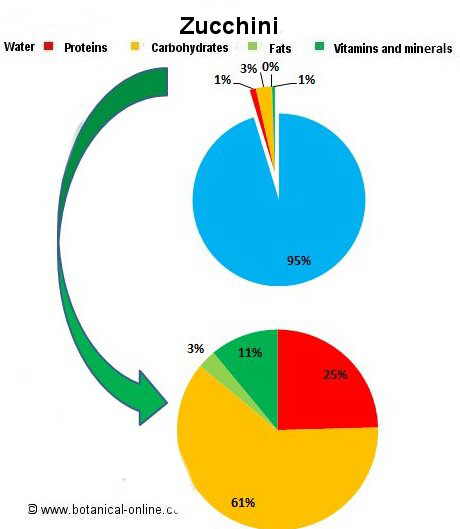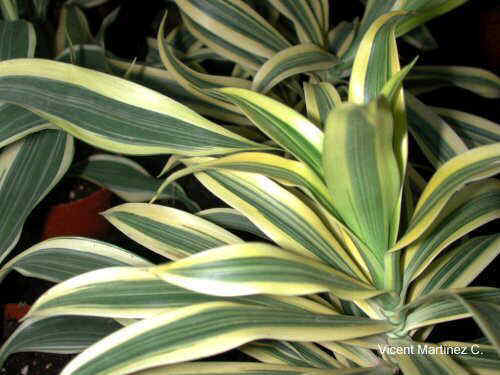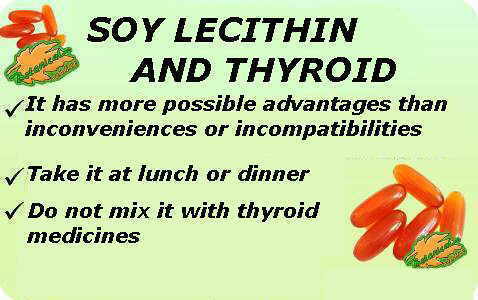Contents
- 1 Herbal remedies for hepatitis
- 2 The best three plants for your liver
- 2.1 Milk thistle for hepatitis
- 2.2 How to use milk thistle for the liver
- 2.3 Mixed liver infusion with milk thistle, peppermint, fennel and anise
- 2.4 Artichoke for hepatitis
- 2.5 How to use artichoke for the liver
- 2.6 Dandelion for hepatitis
- 2.7 How to take dandelion for the liver?
- 2.8 Other plant remedies for hepatitis
- 2.9 Plant supplements for hepatitis
- 2.10 Medicinal plants NOT suitable for hepatitis
Herbal remedies for hepatitis
Which plants are suitable to cure hepatitis?
The role of plants in the natural treatment of hepatitis will focus on the following types of medicinal plants:
- Anti- inflammatory plants that will reduce the inflammation of liver.
- Antioxidant plants that protect the liver against free radicals
- Detoxicant or purifying plants that will help the liver remove toxins from the body.
- Antiviral plants antiviral that will protect the body against infection.
Natural remedies for hepatitis
Home remedies for hepatitis consists in the use of a series of resources with plants and medicinal preparations that will help to improve the state of health of the organ.
Given the severity of the disease, a doctor needs to evaluate the person’s condition, cause of hepatitis, the type and the most appropriate treatment. In no case can medicinal plants substitute for medical treatment.
Along with treatment, it is important to eliminate alcohol consumption, include alcoholic beverages, foods with alcohol and medications such as macerations in alcohol, wine, or tinctures.
Natural treatment of hepatitis should be done under medical supervision.
Infusions and decoctions for hepatitis
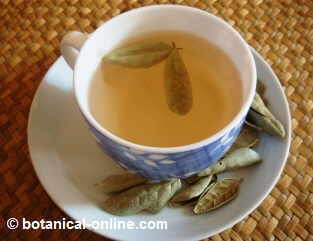
- Boldo (Peumus boldus) Boldo is currently one of the medicinal plants most used in herbal recipes to treat the liver and gallbladder. (Decoction of 1.5 – 2.5g dry leaves in 200ml., Three times a day. Treatments longer than 4 weeks are contraindicated).
- Green tea (Camellia sinensis) It protects the liver and has an antiviral action on it. Its antioxidant properties may protect the degeneration of the liver and help prevent liver cancer or cirrhosis (Infusion of a spoonful of dried plant per cup of water. Take 3 cups a day)
- Honeysuckle (Lonicera caprifolium) (Infusion of a spoonful of dried flowers per cup of water. Take a couple of cups a day) (Decoction for 5 minutes three tablespoons of dried leaves and a teaspoon of dried flowers. Allow to cool and take a couple of glasses a day)
- Turmeric (Curcuma longa) Scientific studies have observed the ability of turmeric as a biliary tonic and protective of the liver (Infusion of 20 grams (4 teaspoons) turmeric powder in 1 liter of water. Filter it with a piece of cloth and drink the preparation in several shots for the next 12 hours)
The best three plants for your liver
Dandelion, artichoke and milk thistle are three medicinal plants with bitter properties, the best of all to maintain the health of our liver.
Milk thistle for hepatitis
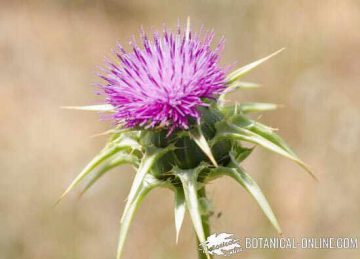
Milk thistle (Silybum marianum) contains in the seeds a constituent called silymarin, which is a remedy for the treatment of liver diseases, among which we can mention hepatitis, liver failure and cirrhosis.
It acts by means of regenerating diseased liver cells and has a protective effect by preventing these diseases, so it’s very appropriate for those who drink a lot of alcohol because it protects them against possible cirrhosis. It is also appropriate to remove impurities that can be deposited in the liver when this organ filters contaminated blood.
Its effectiveness as an antidote against Amanita venom has been tested in order to prevent this fungus toxins can destroy the liver.
How to use milk thistle for the liver
You can use one of the following:
- Roots, stems, and the juice of crushed leaves in the desired proportion
- 1 ml of tincture 3 times daily
- Infusion of a spoonful of crushed fruits by glass of water for 1 / 4 hour. Take three cups a day for 1 or 2 months
- There are silymarin supplements that can be taken according to the patient information leaflet conditions
It is also an edible wild plant whose young leaves can be added to salads and have a restorative function of liver cells and help the body eliminate toxins, making it especially interesting when the diseased liver needs this help.
Mixed liver infusion with milk thistle, peppermint, fennel and anise |
| Ingredients:5 tablespoons of milk thistle fruits 2 tablespoons of the whole plant. 2 tablespoons dried peppermint leaves 1 tablespoon and a half of fennel fruits 1 tablespoon anise fruits Preparation: Make an infusion with a couple of teaspoons of the mix before a glass of water. How to use it: Take a couple of glasses a day for a month and a half or two months. |
Artichoke for hepatitis
Artichoke (Cynara scolymus) protects the liver and helps it to recover in case of liver disease. It promotes bladder function and helps eliminate the need to vomit.
Caffeic acid, linoleic and oleic acid are involved in its hepatoprotective power. Caffeoylquinicacid and cynarin are those that provide its choleretic values, that’s to say they stimulate bile
How to use artichoke for the liver
- Infusion of two teaspoons of dried leaves per liter of water. Take three times daily before meals.
- A preparation of green leaf juice mixed with wine can serve the same purpose
Dandelion for hepatitis
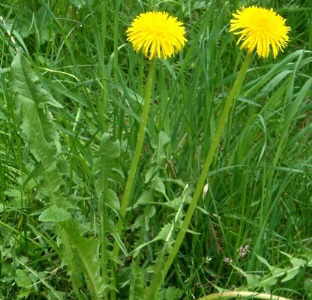
Dandelion (Taraxacum officinale) is a good stimulant for the liver and bile, being very useful in cases of hepatitis.
Besides, being one of the best diuretic, it increases urine output and cleanses the body of toxins by helping the liver to perform its function without having to strain so much.
How to take dandelion for the liver?
- Decoction of 100 g. Of roots in a liter and a half of water. Take three cups a day. It is a very bitter infusion
- This herb can be combined or other plants such as mint or fennel to improve its taste
- Like milk thistle, dandelion is an edible wild plant whose young leaves can be added to salads to give them a special flavor, with a characteristic bitter taste.
Other plant remedies for hepatitis
EAT GINGER TO PROTECT YOUR LIVER AND FAVOR DIGESTION Ginger (Zingiber officinale) stimulates bile and, because of its antioxidant properties, protects your liver by helping it not to develop cancerous tumors. (Add ginger to your natural recipes)
Ginger rhizome |
Plant supplements for hepatitis
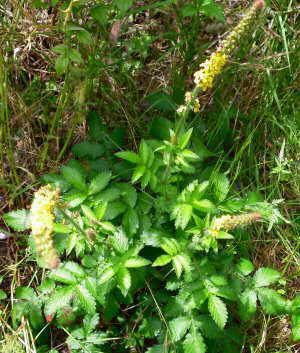
- Agrimony (Agrimonia eupatoria) This plant has been considered a good stomach tonic and anti-anorexic and even suitable for people with hepatitis. (Drink a few cups a day of infusion of one teaspoon of dried flowers per cup of water after meals) (50 drops of fluid extract daily in three divided doses. It can be obtained in pharmacies and health food stores)
- Licorice (Glycyrrhiza glabra) It has been demonstrated that the ingestion of standardized products with glycyrrhizin from licorice has a protective function of the liver, releasing those toxic substances that are harmful, protecting and revitalizing liver cells. This property is useful for treating liver diseases such as hepatitis B or cirrhosis (3 tablets a day of licorice root) (See full study toxicity of the plant)
- Wormwood (Artemisia absinthium) Positive values of wormwood for swollen gall bladder and for the treatment of jaundice have been demonstrated. Equally it is appropriate to assist the liver in cases of liver failure and for the recovery of patients with hepatitis caused by ingestion of chemicals. (Take wormwood capsules according to the patient information leaflet) (Do not take during pregnancy, lactation, gastritis and ulcer. Do not overdose or take it in a prolonged treatment)
Medicinal plants NOT suitable for hepatitis
The liver is the organ in charge of metabolizing medicines and medicinal components of plants. Just as you can not take certain medicines when there is hepatitis or other diseases of the liver, certain medicinal plants are also contraindicated.
Among the plants that should NOT be taken when there is hepatitis are:
- Eucalyptus
- Bearberry
- Kava kava
- Valerian
- Plants with thujone: Sage, tarragon, peppermint, yarrow, caraway, sabine, tancy, etc.
- Plants with pyrrolizidine alkaloids: Tusilago, comfrey, borage, etc.
- Spirulina: Not recommended because it may contain certain amounts of a substance called microcystin, which may be toxic to the liver.
In general, herbs that are not supervised by your doctor should NOT be taken as they may interfere with the course of the disease or the effect of the medications. Always consult the contraindications of each plant.
![]() More information on hepatitis and its natural treatment.
More information on hepatitis and its natural treatment.

